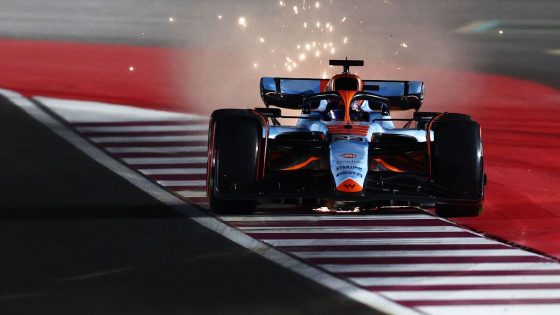F1 to use AI to tackle track limit breaches in Abu Dhabi،
Formula 1’s governing body is testing artificial intelligence (AI) to combat track limit violations at the season-closing Abu Dhabi Grand Prix this weekend.
The FIA said it would use “Computer Vision” technology which uses shape analysis to determine the number of pixels extending beyond the edge of the track.
– Unlapped: How to listen or watch the new ESPN F1 show, episode archives, and more
The AI will fix real breaches, where drivers cross the white line at the edge of the track with all four wheels, reducing the workload of the FIA’s Remote Operations Center (ROC) and speeding up the response.
The Austrian Grand Prix was a record for the sport, with just four people having to deal with an avalanche of some 1,200 potential violations.
At the title-deciding weekend in Qatar in October, eight people were tasked with assessing track limits and monitoring 820 corner passes, with 141 reports sent to race control who then deleted 51 laps.
However, some infractions went unpunished during the United States Grand Prix in Austin in October.
Stewards said this month that their failure to properly enforce track limit violations at turn six was “totally unsatisfactory” and that a solution must be found before the start of next season.
Tim Malyon, FIA head of remote operations and deputy race director, said computer vision technology had been used effectively in medicine in areas such as analyzing data from cancer screening.
“They don’t want to use computer vision to diagnose cancer, what they want to do is use it to eliminate the 80% of cases where there is clearly no cancer in order to give people well-trained more time to review. at 20%,” he said.
“And that’s what we’re aiming for.”
Malyon said the additional layer of computer vision would reduce the number of potential infractions considered by the ROC, and even fewer infractions would be referred to race control for further action.
“The biggest imperative is to expand the facility and continue to invest in software, because that is how we will make great progress,” he said. “The final takeaway for me is to be open to new technologies and continue to evolve.
“I’ve said many times that humans are winning in some areas right now. That might be the case now, but we think ultimately real-time automated policing systems are the way forward.”
















